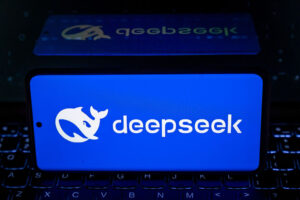Manus AI: A Chinese Firm Disrupts Silicon Valley with DeepSeek-Caliber Performance in Complex Task Management; Are We Nearing AGI?
Manus AI: A Revolutionary Step Forward in Artificial Intelligence
Introduction to Manus AI
A groundbreaking artificial intelligence named Manus has recently captivated public attention. Developed by a discreet team with backing from Chinese investors, Manus sets itself apart from other chatbots by taking on complex, real-world tasks. This innovative AI can do anything from crafting personalized websites and planning trips to Japan to analyzing stock trends for companies like Tesla and assisting teachers in lesson planning. Unlike traditional AI chatbots that merely provide suggestions, Manus excels in practical applications by actively browsing the internet, gathering information, and demonstrating its processes step-by-step—essentially functioning as a digital assistant that truly gets things done.
The Buzz Around Manus
A report from the South China Morning Post highlights the growing excitement surrounding Manus. In less than a day after a demo video was shared on X (formerly Twitter), it garnered over 200,000 views and countless comments requesting access. The creators claim that Manus outperforms OpenAI’s “Deep Research” AI in a widely recognized assessment known as GAIA, which acts as an AI performance metric. While specifics of its inner workings remain undisclosed, the response indicates that many views Manus as a peek into what the future of technology might hold.
Why China’s AI Push Is Significant
China’s Ambitions in Artificial Intelligence
China is currently on a mission to establish itself as a paramount player in the AI domain. Projects like Manus illustrate the country’s commitment to technological advancements. In contrast to the U.S., which hosts major firms such as OpenAI and Google, China is investing substantial resources into its local AI development. Mastering AI is crucial not only for economic growth but also for enhancing security and fostering innovation. Countries that excel in AI development could gain control of pivotal sectors, ranging from healthcare systems to military operations. Manus may very well mark the beginning of China’s strategy to demonstrate that it can produce AI solutions on par with or superior to those originating from Silicon Valley.
The Broader Implications of AI Development
The evolution of Manus serves as a reminder that the AI competition goes beyond just chatbots. The focus is increasingly shifting toward creating AI platforms that mimic human capabilities and actually perform tasks effectively. China aims to lead this transformation and demonstrates its readiness to engage in a global technological race.
Popular AI Platforms in the Market
With many players in the AI arena, it’s important to note some of the most recognized platforms available today:
- ChatGPT: Known for its conversational capabilities and wide-ranging applications.
- Manus AI: The new contender focused on practical task execution.
- Google AI: Offers various tools and applications across domains.
- IBM Watson: Known for its advanced natural language processing.
- Microsoft Azure AI: Integrates AI capabilities into various services.
- NVIDIA AI: Known for developing hardware that supports AI tasks.
These platforms represent just a fraction of the rapidly evolving landscape of artificial intelligence technology.
Final Thoughts on the Future of AI
Manus AI stands at the forefront of what could be a transformative period in artificial intelligence. As nations pour resources into developing cutting-edge technology, the impact of AI on professional life, security, and global competitiveness will become more pronounced. The journey ahead for Manus and similar initiatives will undoubtedly shape our understanding of how AI can assist us in daily tasks and complex projects alike.






